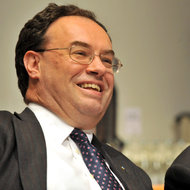The group, estimated to be 400 investors, will seek about 200 million euros, or $260 million, in compensation from the bank and the country’s other supervisory authorities for losses incurred when Bankia shares they had bought for 3.75 euros a share in 2011 devolved into a penny stock.
In a complaint sent to the Bank of Spain this week, Cremades Calvo-Sotelo, the Spanish law firm representing the disgruntled investors, accused the central bank and other authorities of failing to adequately oversee Bankia, from its formation to its listing in July 2011, and then its nationalization last May.
“The measures used to contain the deterioration of Bankia in the context of a severe economic recession provoked exactly the opposite,” according to the complaint, which the law firm used to inform the parties that a suit would be filed. “The entire process of restructuring and intervening in Bankia demonstrates a behavior on the part of the financial authorities that was fully contrary to the standards of prudential regulation.”
Spanish regulators almost entirely erased the already heavily reduced value of Bankia’s equity in March, part of a cleanup that required the country to use 18 billion of its 100 billion euro European bailout in order to keep the bank afloat. Over all, Spain has used 41 billion euros of its bailout to rescue its banks.
The lawsuit against the Bank of Spain — the first of its kind against the country’s central bank — would be extended to Spain’s Economics Ministry as well as its stock market regulator, said Javier Cremades, the chairman of the law firm.
“Bankia’s handling and supervision,” Mr. Cremades said, “shows some very serious mistakes on the part of the Bank of Spain and the other financial authorities and it is essential to hold them liable if we want citizens and investors to recover their confidence in our system.”
The approval of Bankia’s listing also helped “spread the disease indiscriminately,” according to the complaint sent to the Bank of Spain, creating distrust among investors toward the entire Spanish financial sector.
The Bank of Spain had no immediate comment.
Bankia’s collapse has already led to separate litigation. Last July, Rodrigo Rato, the former executive chairman of Bankia, appeared in court after he was named along with 32 other former Bankia executives and board members in a criminal inquiry into potentially misleading accounts at the time of Bankia’s listing, which involved tens of thousands of the bank’s retail clients buying into the stock offering.
Mr. Rato and the others denied wrongdoing and have not been formally charged with any crime.
In February, Bankia reported a loss of 19.2 billion euros for 2012, a record for the Spanish banking industry. It forecast a swift return to profit, following the bailout and a cleanup of its balance sheet. Still, Standard Poor’s, the credit rating agency, downgraded Bankia, noting that the bank was likely to remain dependent on financing from the European Central Bank for the foreseeable future.
Article source: http://www.nytimes.com/2013/05/10/business/global/spanish-central-bank-to-face-suit-over-bankia-bailout.html?partner=rss&emc=rss

